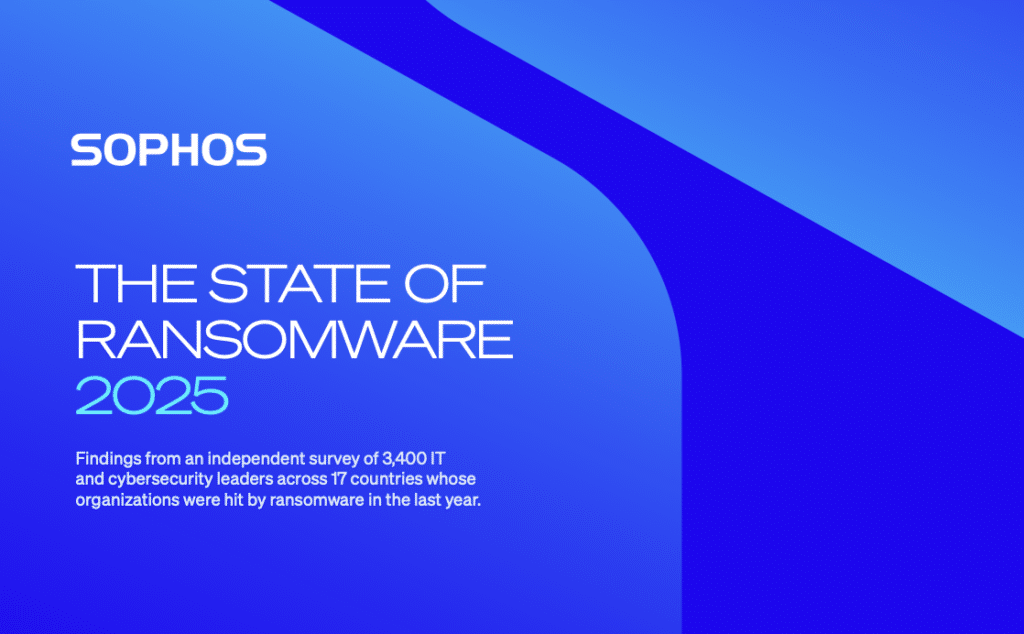Espria implores business leaders to review cyber insurance

Espria has issued a warning to all business leaders in the UK that now is the time to review the small print of any corporate insurance contracts to ensure that their business is appropriately protected against potential cyber attacks. Historically, many businesses have paid little attention to the details of their cyber insurance coverage, but following the pandemic and its associated changes in working practices, these risks have become a priority for many boards’ risk logs. In addition to facing increased energy costs, businesses must also take into account the higher premiums for cyber insurance, Espria states. Cybersecurity threats have grown in recent years on a global scale, with cyber criminals exploiting mismatched networks during the pandemic and continuing to exploit these vulnerabilities. As businesses shifted to remote working environments, cyber threats became a more common reality. Recent reports show that the UK suffered 4,783 cyber crime victims per million internet users in 2022. This is up 40% over the previous year. The trend continues with the number of data breaches and cyber attacks reaching 277.6 million in January 2023. Dave Adamson, CTO at Espria commented, “This is a huge leap in the number of incidents. In our opinion, however, this figure still underplays the real risks; there has always been a lack of transparency around the disclosure of security incidents for commercial reasons.” Cybersecurity breaches can leave connected partners of a company’s organisation vulnerable. With up to 40% of current cyber threats coming indirectly through the supply chain, cyber criminals are focusing on these vulnerabilities. These breaches can result in the loss of confidential data, financial losses, and even lost business opportunities, Espria states. A recent study has revealed that only 23% of security leaders regularly assess cybersecurity vulnerabilities among their partners and vendors. Furthermore, many organisations limit third-party coverage to their direct suppliers and vendors, overlooking the wider network of clients, collaborators, investors, and other stakeholders. It is estimated that by 2025, 60% of organisations will take cyber security risks into account when making decisions about transactions and business interactions with third parties, as awareness of third-party risks increases. On ensuring adequate protection, Adamson says, “Simply looking at the security systems and protocols in place within the organisation is not enough. Firms need to pay close attention to what their cyber insurance covers and stay up to date with the latest risks. Looking at their contract renewal and comparing policies is the first step in due diligence.” Firms often opt for a cyber policy that is packaged within a broader business insurance policy, Espria states. While these are clearly popular, they are often far from as comprehensive as a stand-alone policy and may not cover the business should they fall victim to the latest cybersecurity attack tactics. Many insurance companies have changed the small print significantly, with more caveats and exclusions now in place. As a result, it is imperative that businesses check what is included, what is excluded, as well as any additional caveats and requirements. Adamson continues, “Business email is very often the route into an organisation. It is an easy target, and criminals are much more targeted in their attacks today than ever before. “They are specifically looking to exploit email security vulnerabilities using methods that include: misconfigured sender policy framework (SPF), domain keys identified mail (DKIM), as well as domain message authentication reporting and conformance (DMARC) to enact phishing and email spoofing attacks, which can be used to deploy ransomware. This means insurance must match the potential threat.”

He continues, “Cyber insurance is very often designed to only cover a business from the impact of a successful cyber attack. Depending on the cover, it may well include a mix of financial payments encompassing costs and support for IT forensics, legal, and even communications. It is not, however, a panacea for actual cybersecurity measures. “With cyber insurance pay-outs now on the rise – and the insurers’ loss ratios worsening – it will come as no surprise to any CFO that the insurance industry is now taking steps to reduce its losses and limit the exposure to risk. And this will have several implications for risk management in turn.” Cybersecurity insurance does not replace having the right cybersecurity measures in order. For example, Cybersecurity-as-a-Service from Sophos addresses insurance security challenges, ensuring uninterrupted operations. Adamson adds, “Businesses are finding it more difficult to not only source cost effective cover, but in many instances to obtain cover at all. This, in turn, is leading to increased premiums and a greater focus on a business by their insurance provider to have robust cybersecurity measures and controls in place. “But this is a fast-moving environment, and the nature of cyber threats means that while a business and its insurance provider focus on the most pertinent threat at that moment, cyber criminals are typically one step ahead and that means an endless game of ‘whack a mole’ in which businesses build ever greater security barriers and insurance providers update policies to meet the needs of an ever-changing threat.” “Businesses cannot afford to be slow to respond and we urge all stakeholders – from CFOs to CISOs to check your policies today and ensure they meet the needs of the business not last year, but this week and beyond. Look for any changes in cover limits, as well as any exclusions. According to research from Sophos one in four cyber insurance policies today exclude ransomware – which is one of the biggest cyber risks today.”
You may be interested in
The 2025 State of Ransomware: Key Insights on Attacks, Costs, and Recovery
Ransomware continues to evolve — and so must our defenses. The State of Ransomware 2025 report from Sophos presents one of the most comprehensive views yet into how organisations around the world are being impacted by ransomware attacks. Based on an independent survey of 3,400 IT and cybersecurity leaders across 17 countries, the report explores how attacks are evolving, the operational weaknesses adversaries exploit, and the human and financial tolls that follow. Whether you’re building a cybersecurity strategy or assessing risk, this year’s findings offer crucial, real-world insights to guide your response. Key Findings from…
Outgrowing your MSP; businesses need a provider that scales with their growth
To stay competitive, business leaders must align with MSPs that deliver strategic value, drive innovation, and support to scale. Now firmly into 2025, it’s becoming clear what the year has in store for the IT landscape. For SMBs, the message is clear: business growth must be matched with smarter, more scalable managed services. The demand for cyber-resilient, cloud-first and AI-integrated solutions is no longer a forecast – it’s a reality already shaping business priorities. According to leading global technology market analyst firm Canalys’ MSP Trends 2025 report, the MSP model is transforming under growing pressure…
End of windows 10 support signal urgent action needed from UK organisations as cyberattacks continue to rise
Recent breaches at major UK retailers, combined with the approaching end of life of Windows 10, highlights a critical moment for IT resilience planning The recent wave of cyberattacks targeting major UK retailers has highlighted the growing security risks associated with organisations running outdated systems and applications and maintaining weak identity verification protocols. These incidents—particularly those involving Marks & Spencer and the Co-Op—have starkly exposed how vulnerable legacy infrastructure and insufficient access controls can be. In both cases, attackers successfully posed as legitimate employees and manipulated IT help desks into resetting internal passwords, ultimately gaining…
UK SMEs must fortify their cybersecurity against geopolitical risks, says Espria
A recent Sky News investigation highlighted an uptick in cyberattacks tied to the Iran conflict that are targeting businesses across multiple sectors. Speaking at the NATO Summit, Prime Minister Sir Keir Starmer urged UK businesses, regardless of size or sector, to prioritise cybersecurity and ‘take immediate steps to review and strengthen their defences.’ While the warning is timely in tone, businesses are already becoming targets of politically motivated cyberattacks, emphasising the need for heightened vigilance. “As tensions spread globally, threat actors will continue to exploit digital vulnerabilities, and neutral businesses may be caught in the…
End of windows 10 support signal urgent action needed from UK organisations as cyberattacks continue to rise
End of windows 10 support signal urgent action needed from UK organisations as cyberattacks continue to rise
Why Businesses Should Invest in ESG: Lessons learned by Espria
In today’s competitive landscape, Environmental, Social and Governance (ESG) performance is no longer just a “nice to have”—it is a critical business imperative. Companies that prioritise ESG are better positioned for long-term success, risk mitigation, and reputation enhancement. Today’s world demands more from companies than just financial performance. Customers want transparency. Employees want purpose. Investors want resilience. ESG helps businesses manage risk, seize new opportunities and build trust with the people who matter most. It is how you can stay competitive, stay responsible and stay relevant in a fast-changing world. A powerful case study of…





